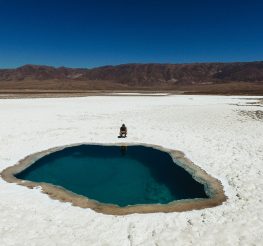-
Paulo Coelho
-
Fiction
-
Out now
-
English English
-
128 EGP
-
Everywhere
Seif El Mashad

Brazilian novelist, Paulo Coelho, has enjoyed huge recognition and praise since the release of his first best-seller, The Alchemist, in 1988; the story of a young shepherd who goes on a treasure-seeking voyage, only to find that the treasure was the journey itself. Selling 65 million copies, and being translated into over 70 languages, the book became one of best-selling books in history. With every new Coelho book, expectations are high and the same applies to his latest novel, Manuscript Found in Accra.
The narrator of the preface tells us that scrolls found in Egypt back in 1307AD are now in the possession of an English archaeologist, Sir Walter Wilkins, following a family trip. The book then goes on to transcribe what is written, and it goes as follows.
Set within the walls of the of Jerusalem on the 14th of July in 1099 – when the French crusaders were nigh – people of different ages and faiths gathered to hear the wisdom of a mysterious Greek who roamed Jerusalem. Known simply as ‘the Copt’, people turned to him for guidance.
He was a believer something called Moira, descrobed as “the unknown god, the Divine Energy, responsible for a single law, which, if ever broken, will bring about the end of the world.”
A priest, a rabbi and an imam ask the Copt about love, solitude, the difference between defeat and failure, loyalty and recognising one’s enemies, beauty, fear and all other facets of human existence.
Allocating a chapter to each question, the book reads as more of a philosophical essay than a traditional novel, and each section encourages introspection.
The book concludes with the Copt urging the people who listened to his words to write them down, and pass them on to the next generations and to people from other cities so that they could be exposed to the Divine Energy. Ultimately, he is urging them to write the manuscript that will later be discovered.
Manuscripts Found in Accra is different from Coelho’s older books in that it doesn’t concentrate on a single theme. The Devil and Miss Prym tackled the notion of temptation, Eleven Minutes addressed sexual desire, and The Alchemist discussed the concept of the spiritual and the materialistic self. However, his latest release doesn’t commit itself to one path, but instead highlights a variety of themes and the ultimate goal of seeking more harmonious approaches to life.
Like all Coelho’s work, its concise, easy-to-read and very accessible.
Write your review
recommended
 Arts & Culture
Arts & Culture
Art Cairo Returns to the Grand Egyptian Museum This January
Arab Art Art Cairo +8 City Life
City Life



